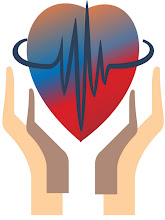 While there is no cure for Crohn's Disease, treatment options available vary due to the complex nature and life-altering symptoms of the disorder.
While there is no cure for Crohn's Disease, treatment options available vary due to the complex nature and life-altering symptoms of the disorder. This disease covers inflammation of the gastrointestinal tract from the mouth on down, several combinations might be needed to control the varying side effects, which include diarrhea, abdominal pain, vomiting, weight loss, and possibly arthritis, skin rashes, inflammation of the eye and fatigue.
Depending on the severity and combination of the symptoms, where the disease is located in the tract, or whether Crohn's is in remission, treatment options can range from simple diet changes to surgery.
With the direction of your physician or a specialist, several treatment options might be needed to keep Crohn's under control.

Medication
Physicians often prescribe anti-inflammatory drugs as the first course of treatment for Crohn's, but many have a number of side effects ranging from nausea to insomnia. Included in the list of drugs are Sulfasalazine, Mesalamine and Corticosteroids, depending on the severity of the symptoms. Other medications include immune system suppressors, antibiotics, over-the-counter pain relievers, anti-diarrheal medicine. and laxatives, and vitamin and mineral supplements. Antibiotics are used to heal fistulas and abscesses to hopefully avoid surgery. As with any medication, report any and all side-effects to your doctor.
Diet
Nutrition is important with Crohn's because the disease generally decreases appetite but the body needs more caloric intake, as is normal with any chronic illness. Proper hydration and diet also play a large factor in controlling symptoms as the disease affects the digestive tract. Physicians might suggest eating smaller meals in lieu of larger ones to help with diminished appetite or prevent unnecessary inflammation. Especially during inflammations, blander foods are recommended instead of spicy foods because they are gentler on the digestive tract. Some patients might be directed to follow a low dietary fiber diet or keep a "food diary" to identify triggering foods, while others will be instructed to avoid lactose-based foods like milk or cheese. In some cases, a doctor might recommend a feeding tube or nutrition to be administered via an IV. This allows the bowel to rest, but when normal eating resumes symptoms could immediately return.
Lifestyle
Diet, proper exercise and regular sleep patterns can also help control the fatigue regularly associated with Crohn's. Cigarette smoking has been linked to Crohn's, so if you are a smoker, quitting greatly reduces the symptoms of the disease, as well as other health risks.
Surgery
As with any other disease, surgery is generally a last-choice option should other forms of therapy inadequately treat Crohn's. Again, since there is no cure for Crohn's, the ultimate goal of surgery is to provide, hopefully, a few years of remission. However, the Mayo Clinic estimates that about 75 percent of all Crohn's patients will need some type of surgery in their lives. A common procedure is bowel resection. That is when a surgeon removes damaged sections of the intestine and reconnects the ends of healthy tissue. Surgery can also be used to remove scar tissue, close fistulas or drain abscesses. Another surgery is strictureplasty where a surgeon widens a narrowed section of the bowel to allow regular flow without further shortening the intestines. Unfortunately, Crohn's generally returns to other areas of the intestine so surgery is only a temporary fix. About half of patients will need a second surgery or more, according to the Mayo Clinic.Some helpful web resources:
Living with Crohn's disease: Practical strategies




No comments:
Post a Comment